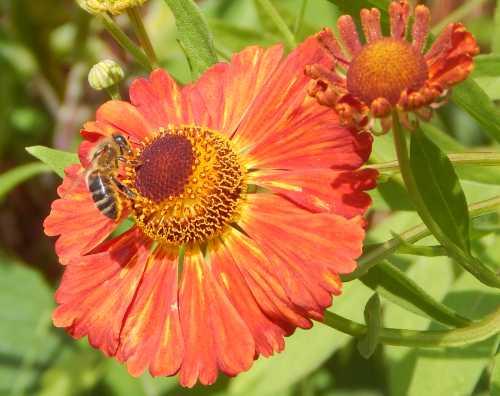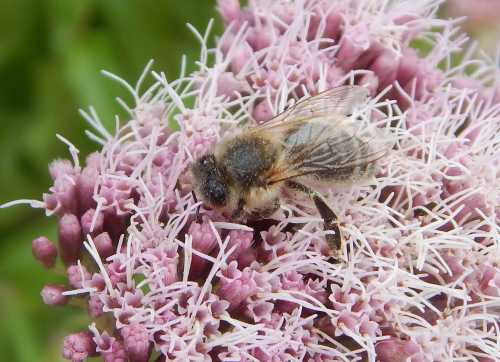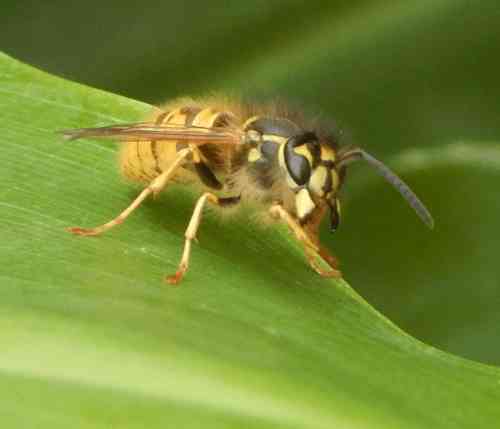Bees, Invertebrates, And Education
I’m convinced that education is really key to help develop a balanced perspective regarding invertebrates,
and their roles in the eco-system.
However, whilst many people recognise a butterfly and a bumble bee, our knowledge of invertebrates and the valuable role invertebrates play in the ecosystem tends to be limited.
Challenging The View Of Invertebrates As 'Pests'
Invertebrates are often thought of as mostly falling into the 'pest' category, but research shows this is not the case.
1. Most people know little about invertebrates and their role - even when it comes to bees!
Most invertebrates have a very low profile, and with
the exception of a few beneficial species and a few ‘pests’, many are prone
to mis-identification, or their role is not understood.
Despite the high profile of honey bees, only 12% of UK adults were able to correctly identify them in a recent Friends Of The Earth Survey - so what hope do the majority of beneficial insects have?
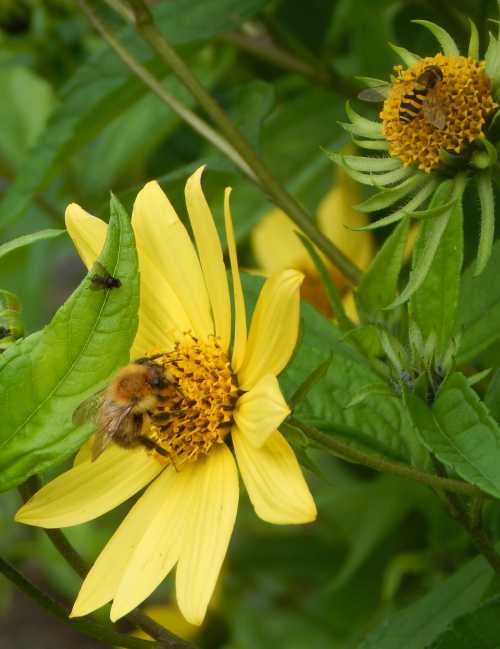 Bumble bee and hover fly on helianthus flowers.
Bumble bee and hover fly on helianthus flowers.
There are some solitary bees such as Heriades truncorum that are so
tiny, they could be mistaken for little black flies!
I think we need to become more familiar with species: from bees, beetles, flies, butterflies and many other creatures and the roles they play.
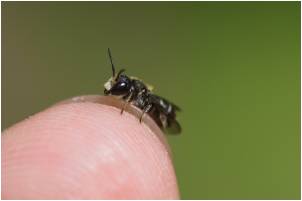 Some solitary bees that are so tiny, they could be mistaken for little black flies, like Heriades truncorum.
Some solitary bees that are so tiny, they could be mistaken for little black flies, like Heriades truncorum.
2. Only 1000
species of insect in the world are considered to be agricultural pests
Most invertebrate species are beneficial or harmless, but each year they destroy between 10 and 15 percent of the World’s agricultural produce. Source - The British Natural History Museum.
Yet
humans waste one third of food produced, globally every year – mostly in the
West!
Source: UN Report http://www.fao.org/docrep/014/mb060e/mb060e00.pdf
So why are we worrying about 10 - 15% of food crops, when we are wasting a third?
And which is of greater detriment to the environment, a few plant nibbling beetles, or the thousands of toxic product polluting the environment every year?
To put it another way, there are over 1 million insect species in the world
Source:
Australian Government:
So, based on our figures for 1000 agricultural pest species, we could therefore, estimate that 999 species out of every 1000 is
beneficial or harmless, and only 1 is a pest.
3. The value of the
bees' services alone has been estimated at £200m a year
The retail value of what they pollinate was valued closer to £1bn.
(Source: The Economic Value Of Honey Bees: http://news.bbc.co.uk/1/hi/business/8015136.stm).
4. There
are many important direct and indirect contributions made by all manner of
species
From hoverflies, butterflies, lacewings, and ladybirds to earthworms
and various beetles and ‘low profile’
invertebrates – all not quantified, since none of those species ever sent a
farmer or gardener a bill!
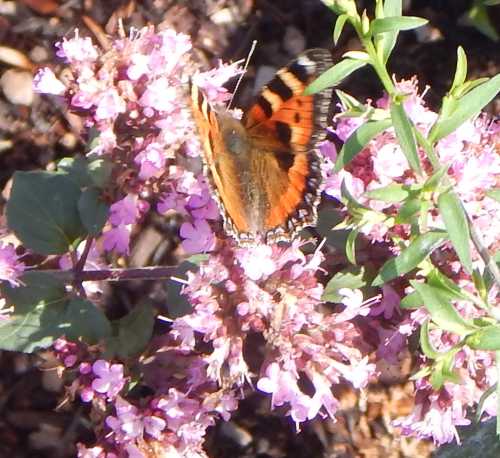 Small tortoise butterfly on Oregano (Marjoram).
Small tortoise butterfly on Oregano (Marjoram).5. Farmers need better advice and information from non-vested interests about 'crop pests'
Research shows that farmers were treating for pollen beetle unnecessarily. This is not only bad for the environment, it's expense for farmers.
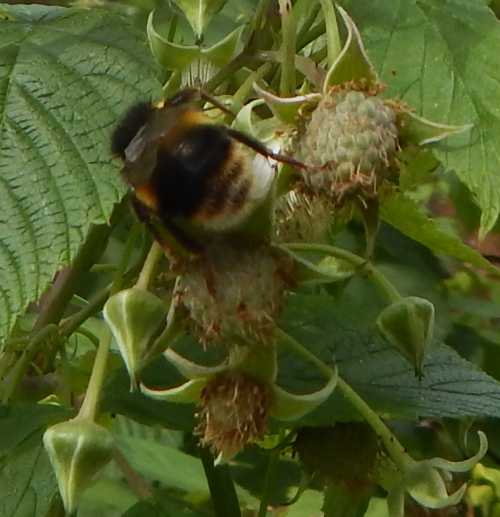 Bumble bee on raspberry flowers.
Bumble bee on raspberry flowers.Further more, if retailers, farmers and the public had a more balanced and better understanding of the contribution of invertebrates, they may be more motivated to find environmentally methods of gardening and farming, and more likely to accept ‘imperfect’ fruit and vegetables.
6. Rodale study
A 30 year study by the Rodale Institute showed that ultimately, organic farming methods match production of intensive, environmentally destructive methods of farming, and exceed it in some climate conditions.
How many farmers would be aware of this research, I wonder?
If you found this page helpful or interesting, I'd really be grateful if you would share it with others - if not this page, perhaps another, such as Gardening For Bees.
Thank you so much :) .
